
















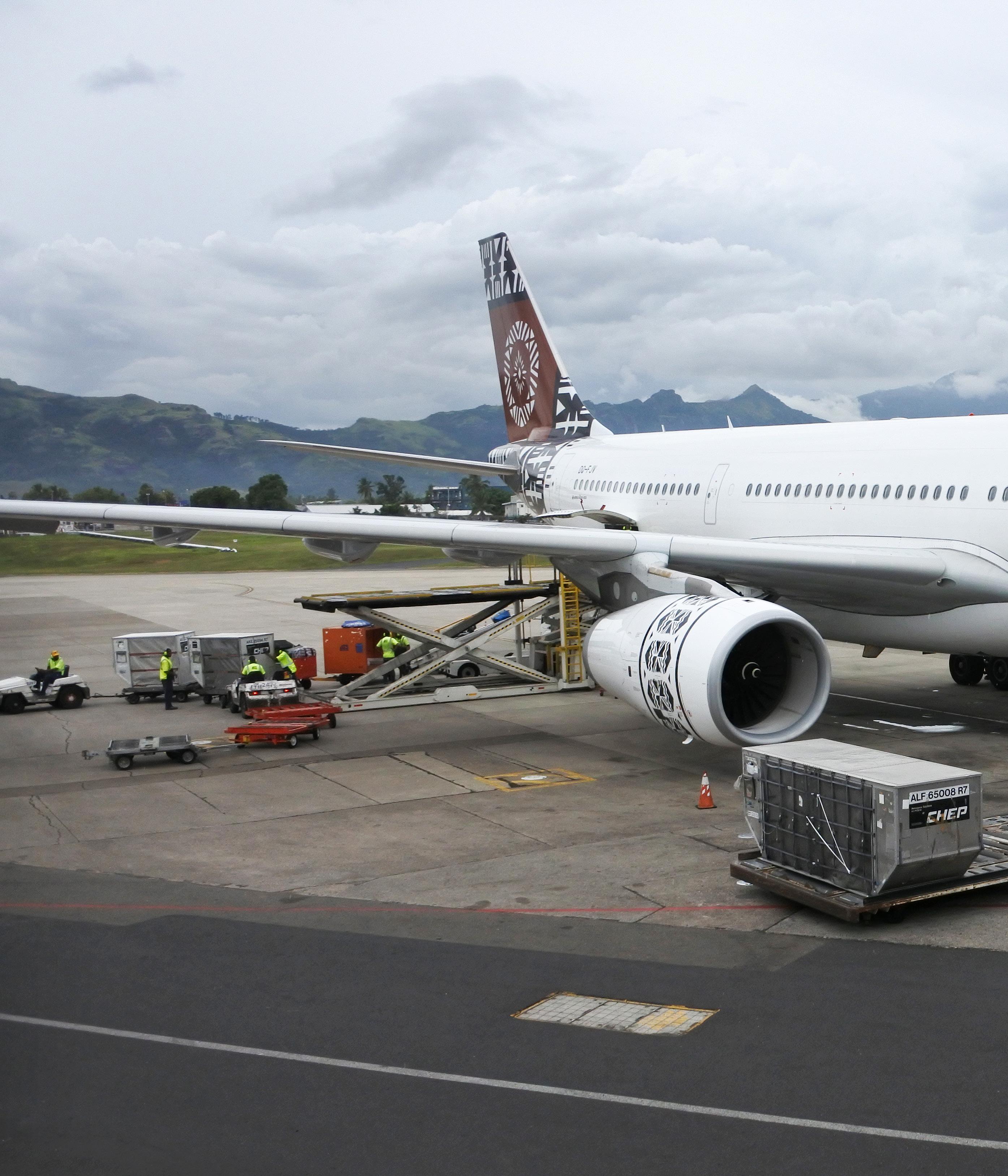
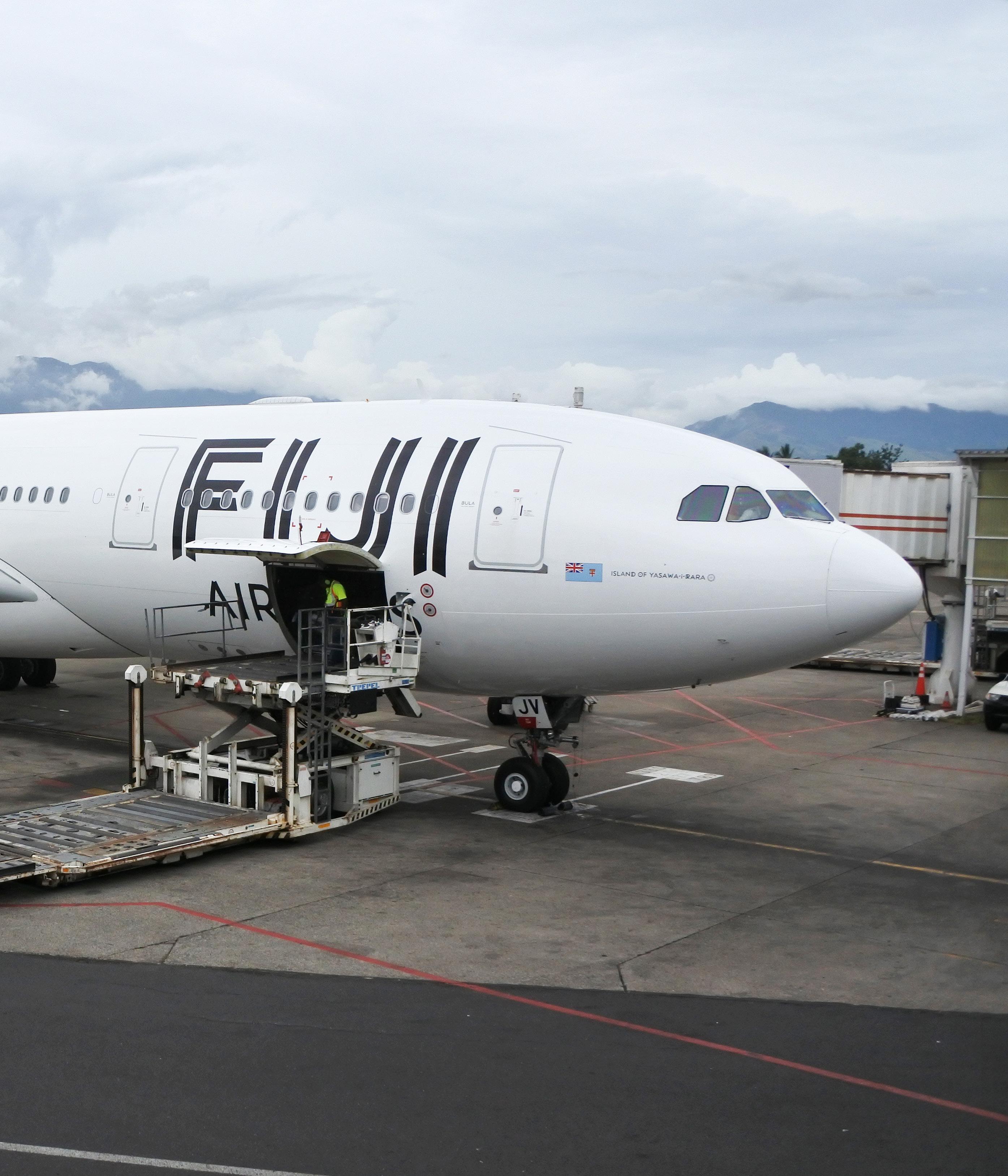
Owner of the world-renowned Nadi International Airport, Fiji Airports has been experiencing continuous growth, thanks to the proactive modernisation of its 15 airports and the welcoming of a new CEO, Mesake Nawari
Writer: Lucy Pilgrim | Project Manager: Ryan Gray
In correlation with the wider global landscape at the time, the Fijian aviation industry suffered detrimental effects at the hands of the COVID-19 pandemic, causing a stagnation in international travel and trade.
However, the nation’s industry has reached a turning point in recent years, with the re-opening of the global trade market, and the reclamation of Fiji’s status as a top tourist destination.
“The aviation industry is at an exciting juncture with the resurgence of air traffic post-COVID-19,” opens Mesake Nawari, the newly-appointed CEO of Fiji Airports (FA), who has been taking full advantage of the industry-wide uptake in business.
• 127,000 jobs supported by the air transport sector
• USD$2.2 billion gross valueadded contribution to GDP
• 43 percent of Fiji’s GDP is supported by air transport and foreign investments
• Creates 7,000 total employment opportunities
• Estimated to support a further 5,000 jobs through the wages paid to employees
• Generates USD$4.8 billion in foreign direct investment (FDI)
• Produces USD$1 billion in exports
• Generates USD$1.2 billion in foreign tourist expenditure
• Tourist expenditure estimated to support an additional 127,000 jobs
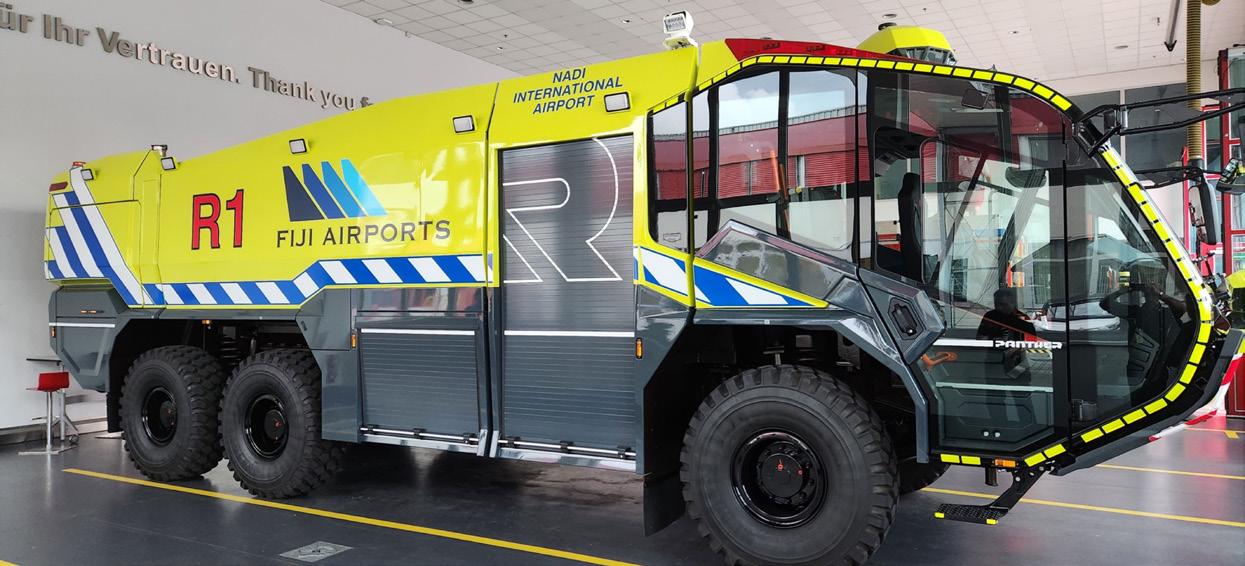

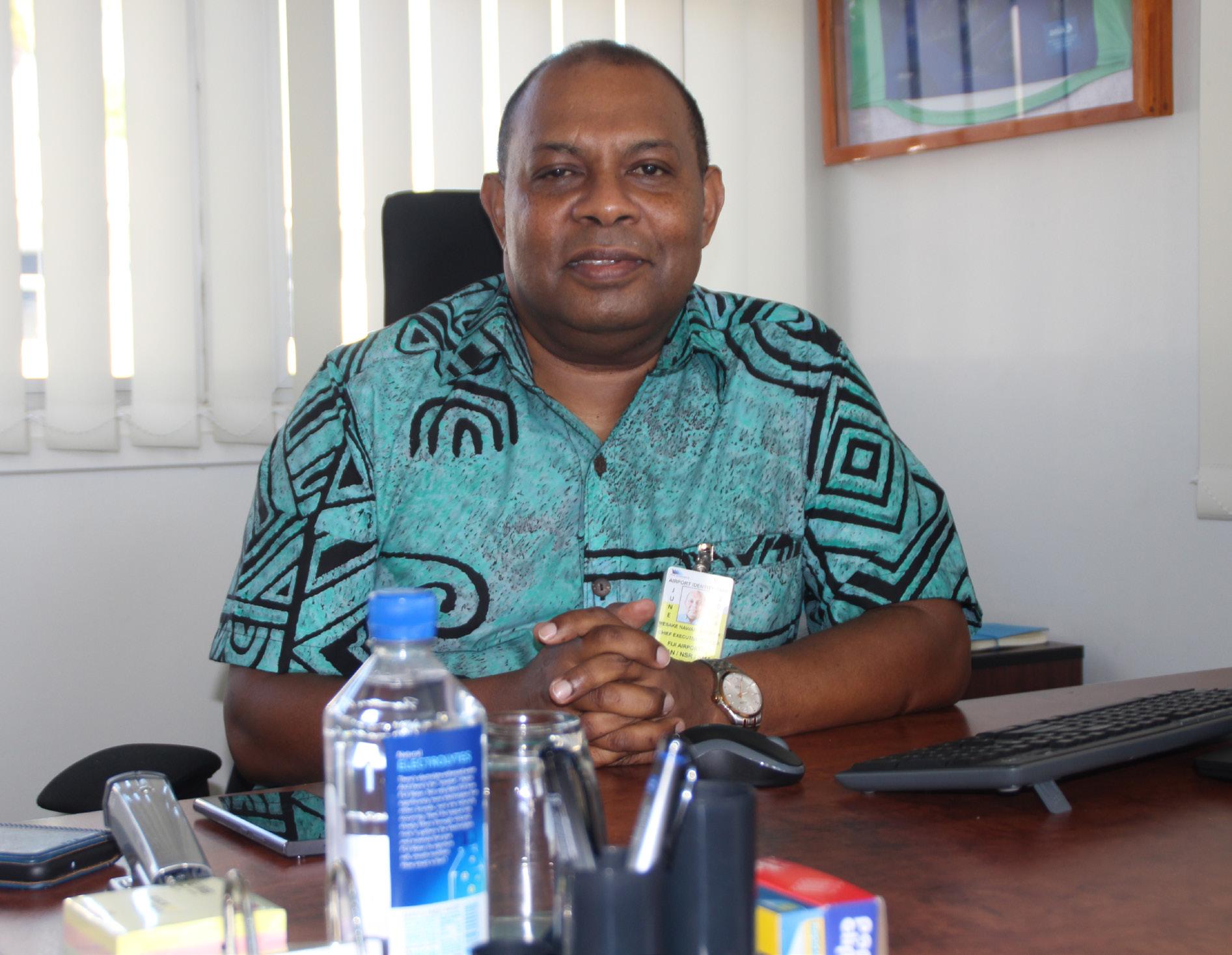
“THE AVIATION INDUSTRY IS AT AN EXCITING JUNCTURE WITH THE RESURGENCE OF AIR TRAFFIC POST COVID-19”
– MESAKE NAWARI, CEO, FIJI AIRPORTS
As a fully owned, government commercial company, established in April 1999, FA has been diligently serving Fiji’s domestic and international airline for over 25 years, having transformed the country’s aviation industry and tourism and trade sectors as a result.
As a conscientious government body, the company has a responsibility to maintain Fiji’s airport system. This is achieved by
a comprehensive, in-house dual reporting system that reports to the Minister for Public Enterprises for FA’s commercial performance and the Minister of Civil Aviation on policies relating to the wider industry.
Comprising approximately 450 staff, the company operates 15 airports across the archipelago on behalf of the government, including both Nadi and Nausori International
Airports, alongside 13 other domestic sites.
FA provides holistic services to both the supply chain and tourism sectors, comprising operational, technical, commercial, and administrative departments.
Following recent industry trends in aviation, the company endeavours to retain its human capital with a high outflow of skilled workers to overseas markets.

GECI Group (GECI) is a global provider of technology and engineering solutions, focused primarily on transportation, energy, and infrastructure for civil and military services.
In nearly 40 years, the company has expanded its global presence significantly across five continents, with 60 percent of its economic input generated from abroad.
Daniel Jiménez Randell, CEO of GECI, acknowledges that its international success lies in the quality of its services and products.
“Global shipping service providers, especially from developing countries, spurred our internalisation as they began to ask for assistance with our services,” he cites.
GECI is currently working in over 15 countries to provide flexible, custom-designed solutions and services in South America, Europe, Asia, Africa, and the Middle East.
One of GECI’s core activities is systems integration, offering a wide range of services in communications, navigation, surveillance, and air traffic management. The company carries out everything from new installations to complex technical upgrades and modernisations.
“In the world of aviation, we are present in aircraft maintenance, aircraft manufacturing, airport operator systems such as baggage control systems, flight information systems, and landing aids, as well as air navigation,” Randell highlights.
GECI also develops solutions as a prime contractor in project management, installation, and the construction of airports. It has extensive experience in the construction of control towers, technical blocks, communication, and auxiliary structures.
Furthermore, the company is able to deliver turnkey projects including civil, electrical, and mechanical works, such as project management, logistics, and installations.
GECI’s activity also encompasses solutions to manage risk and maximise performance based on its technical leadership expertise. Its services include technical assistance, coverage analysis, performance studies, equipment configuration, detailed preliminary design, installation drawing, site inspection visits, and operational training.
Its offering extends to the drafting of relevant maintenance recommendations, equipment audits, annual maintenance contracts, modernisation and upgrade services, spare parts supply, electrical and electronic repairs, and after-sales service.
Put simply, the company offers complete outsourcing for manufacturers, handling, purchasing, and stock management. Its customers focus on production so that GECI can take care of everything else.
In the industrial sector, GECI is a pioneer of valueadded services, which comprise the integral management of the supply chain, delegated quality systems, and fourth-party logistics (4PL) across many manufacturing chains such as aeronautics, mining, railway, automotive, and food, whilst overseeing stocks and warehouses.
In the aeronautical sector, GECI provides engineering, maintenance, and logistics services. The company offers tailor-made solutions for the operation and maintenance needs of aircraft, engines, and components, covering all types of projects developed jointly with operators and maintenance centres. These projects include, among others, engine repair programmes for complete fleets, component repair management, flight simulators, and training for technical personnel amongst more.
In summary, GECI is a worldwide, high technology, energy and manufacturing support company, which has been providing technical and commercial expertise to a wide range of customers in the aeronautical, telecommunications, infrastructure, and transportation industries for over 25 years.

“FA’s key focus is operating the airspace and airports in accordance with International Civil Aviation Organisation (ICAO) standards and recommended practices,” Nawari highlights.
Fiji’s collection of airports has meant that the country has been internationally regarded as a leader in the global aviation industry, as well as becoming a national icon for Fiji. Consequently, the company takes great pride in connecting the country’s tourists and nationals to each other, and the world.
In particular, Nadi International Airport welcomes 97 percent of
international travellers to Fiji, of which 80 percent are tourists, Moreover, the airport handles more than 2.1 million international passengers and close to 300,000 domestic passengers annually.
Regarding wider trade, the airport also oversees more than 1.3 million tonnes of freight, services 20 airlines, and connects the country to 15 cities across the globe.
The recent increase in air traffic over the last 18 months has highlighted FA’s need for modernisation, in order to meet the ever-increasing demand.
“Our airports are having to deal with capacity issues and aging infrastructure that is in need of replacement if we are to keep up with the influx of arriving and transit passengers,” Nawari tells us.
To rectify this issue, as well as meet forecasted growth in the coming decades, the company is currently focusing on the revamp of its existing sites through a mix of short-term and long-term strategies including investment in state-of-the-art infrastructure.
“FA has embarked on a capital expenditure plan that will look into upgrading the assets and infrastructure in all of its 15 airports,” he adds.
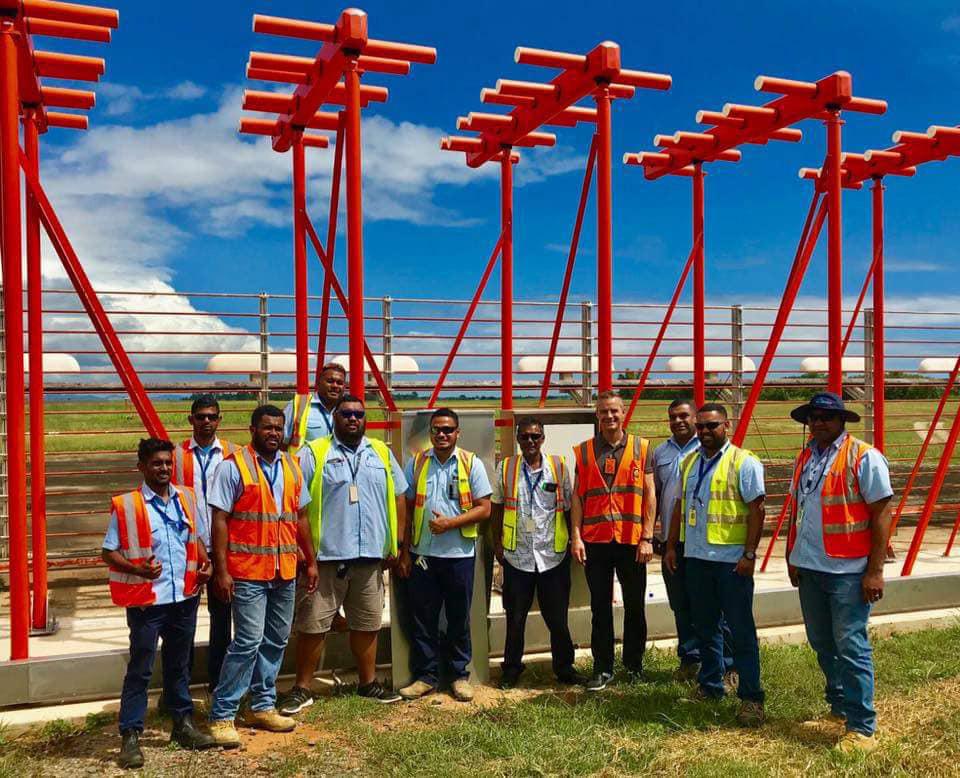
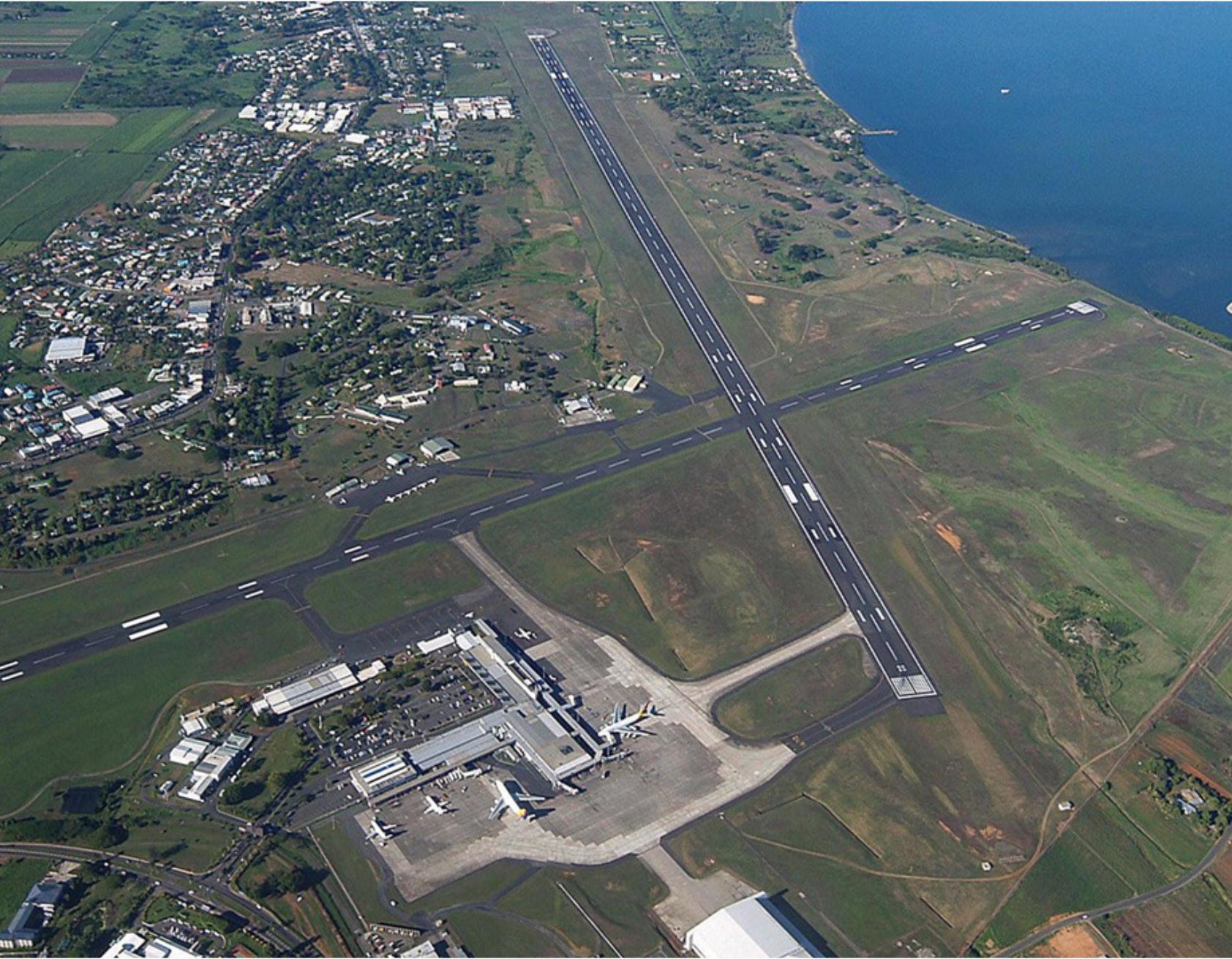
Across its sites, Nadi International Airport is one of the most up-to-date, following an investment of FJD$130 million between 2014 and 2018, which saw the first phase of its modernisation. In continuation, the company’s focus over the next decade is the further development of existing infrastructure to align with the company’s 2018 to 2043 master plan.
Elements of this plan include apron expansions, specifically of the offgate apron, the expansion of departures lounge space; baggage handling and arrivals facilities; four new aerobridges; and the relocation of the freight terminal and cargo complex to the north-west quadrant.
On top of this, there will be a new domestic terminal built next to the
International Terminal, as well as the development of a contemporary transit hotel and accompanying carpark. Meanwhile, a masterplan will be created for the development of the Fiji Airports Compound, located on the other side of the runway.
The Nausori International Airport runway recently underwent an upgrade in 2021, costing FJD$67 million. As a result of the revamp, the airport can now cater for full capacity B737 operations. Currently, Nausori International Airport operates three regional ATR72 flights a week to Funafeti, the capital city of neighbouring island, Tuvalu.
Future plans for Nausori International Airport include the construction of a new airport terminal,
expected to cost approximately FJD$33 million, with the Fiji government’s support.
Furthermore, the proposed upgrades to the Labasa Domestic Airport, one of the gateways to Fiji’s second-largest island, Vanua Levu, foresees improvements to the airfield’s aviation facilities, such as a runway pavement upgrade, remote tower and fire-fighting facilities, as well as terminal infrastructure that will meet the increased demand for domestic operations in the future.
This will be completed in partnership with the World Bank, the Ministry of Finance, and the Ministry of Tourism and Civil Aviation, who will fund the various infrastructure upgrades.
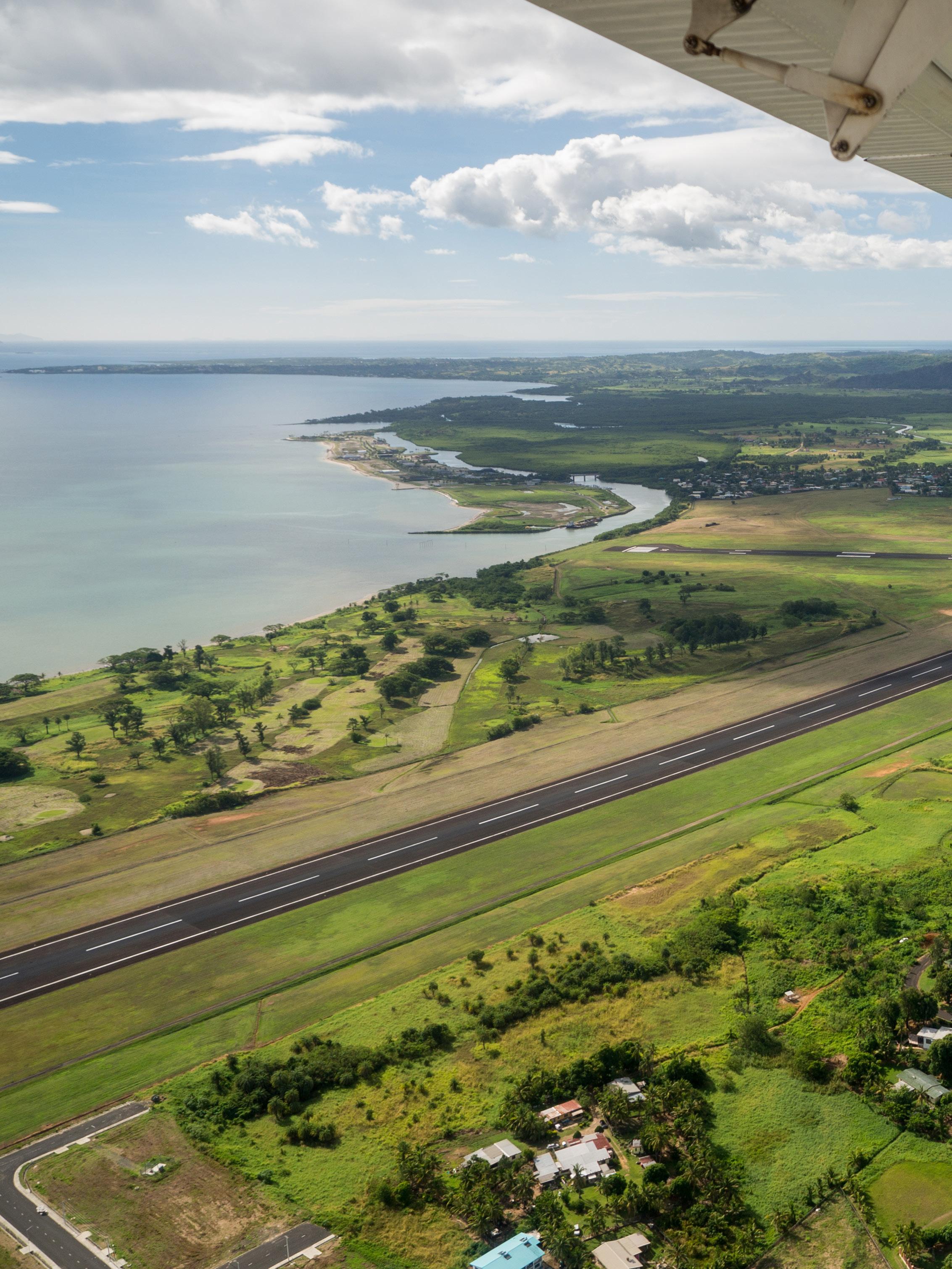

The World Bank is also funding the upgrade of Savusavu Airport, which will comprise a terminal design and rebuild, pavement civil design, pavement maintenance, bathroom refurbishment, and much more.
FA will continue to also fund the maintenance and modernisation of its 13 outer island airports, to ensure that they meet operational requirements. A further focus of the outer island sites is to ensure they are resilient to the impacts of climate change, including increased temperature and unpredictable weather conditions.
Both Labasa Domestic Airport and Savusavu Airport can be found on Fiji’s second largest island, Vanua Levu, which has become increasingly important to Fiji’s tourism sector, possessing scenic harbours and breathtaking views.
As the national aviation authority for Fiji, CAAF is responsible for creating and implementing the industry’s functions on behalf of the government of Fiji, according to the state’s responsibility to ICAO.
As part of its role, CAAF regulates, certifies, and licences airport operators, air traffic and air navigation service providers, aviation security service providers, pilots, aircraft engineers, air traffic controllers, technicians, airline contracting organisations, and international air cargo operators in Fiji and abroad, whilst conducting regular surveillance checks on the respective entities.

Indeed, this has also increased the amount of tourists visiting Fiji, subsequently resulting in the construction of world-class hotels and facilities. Elsewhere, Matei Airport is located on the island of Taveuni, a picturesque volcanic island situated in the northeast of the Fiji island group.
In turn, with such illustrious holiday destinations on offer, more tourism and international trade is brought to the archipelago, therefore bolstering the demand for highly developed airport facilities.
As a wider branch of FA, the company provides reliable air traffic management (ATM) services within the Nadi Flight Information Region (Nadi FIR), which includes the sovereign airspaces of Tuvalu, New Caledonia, Kiribati Vanuatu, and Wallis and Futuna, covering a total of six million square kilometres (sqkm).
Commissioned in April 2021, its Aurora ATM System is one of the recent ventures for FA, as it expands its supply chain repertoire. The new

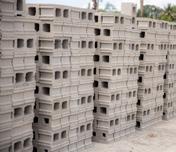

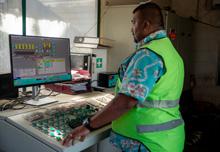
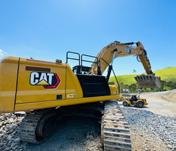

For over 60 years Basic Industries Pte Limited (BIL) has stamped a mark on Fiji’s Infrastructure Development and Construction Sectors as a leading organization of advancement being one of the country’s largest vertically integrated businesses embodying operational excellence.
Our Companies’ specialization lies in the supply of premium quality products whether it be our structural ready-mix concrete, engineered pre-cast concrete pipes & products, masonry blocks & decorative pavers or our diverse range of quarry aggregates and sand.
Quality is not a mere notion; it’s ingrained in our ethos. Our team fully comprehends that the resilience of Fiji’s infrastructure hinges on the materials employed in its construction and our commitment to delivering top-notch products remains unyielding. Central to our operations are our customers. BIL prides itself not just on delivering products but on presenting engineered solutions with a customer-centric approach.


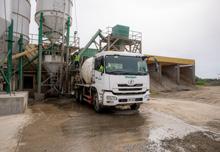

As custodians of Fiji’s evolving physical landscape, BIL takes sustainability seriously. From sustainable quarrying practice to eco-conscious best practice production processes, BIL is committed to leaving a positive imprint on Fiji’s environment.
Basic Industries Pte Limited transcends being a mere construction entity; we are dream builders, architects of progress, and partners in Fiji’s narrative of growth. As we look to the future, we are eager to persist as a cornerstone of Fiji’s infrastructure evolution, shaping a future that is both robust and beautiful.

Aurora ATM System consolidates an Oceanic, approach, and tower control capabilities, further supported by an automatic dependent surveillancebroadcast (ADS-B).
The system also showcases a brandnew air traffic control (ATC) simulator which ensures that the company’s staff base remain up to date with the latest training methodologies.
The Aurora ATM system integrates industry-leading procedural airspace management with the appropriate functionalities that are effectively used to manage air traffic in an ADS-B surveillance environment.
The system upgrade further modernises the ATM system by providing air traffic controllers with the latest state-of-the-art technology. As a result, they have access to electronic flight strips, advanced flight and surveillance data processing, and above-adequate training capabilities.
By utilising the system, optimal fuel efficiency is guaranteed in the procedural environment, further facilitating reduced separation minima that quantifies top airspace efficiency.
In October 2022, FA introduced surveillance control using ADS-B technology in the Fiji domestic airspace, becoming the first country in the world to transition from procedural control to surveillance control without the use of radar.
On top of this, the company’s recent innovations extend to the implementation of ICAO’s global reporting format (GRF) for both Nadi International Airport and Nausori International Airport in November 2021. This involved carefully detailed trials with FA’s partners, as well as precise documentation, equipment, and training required for staff to guarantee competency and regulatory compliance.
The upcoming projects in the ATM arm of the company include upgrades to the high-frequency radios, the Automatic Message Handling
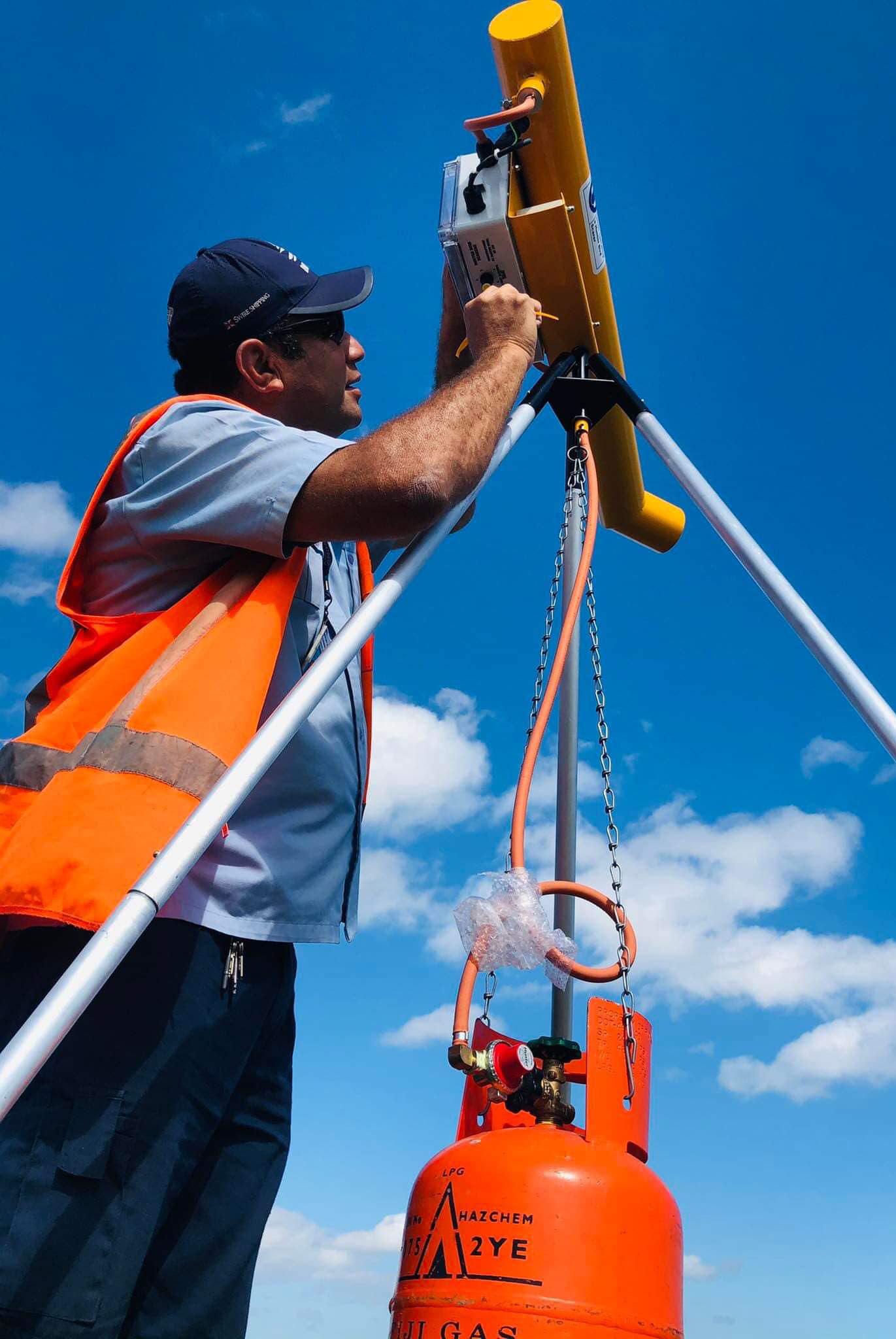
“FIJI AIRPORTS HAS EMBARKED ON A CAPITAL EXPENDITURE PLAN THAT WILL LOOK INTO UPGRADING THE ASSETS AND INFRASTRUCTURE IN ALL OF ITS 15 AIRPORTS”
– MESAKE NAWARI, CEO, FIJI AIRPORTS

System (AMHS), the transition from aeronautical information services (AIS) to aeronautical information management (AIM), along with the introduction of remote tower technology and system-wide information management (SWIM).
FA is also seeking to break societal barriers within its ATM team regarding gender representation, with a 40 percent female workforce operating in a typically male-dominant work environment.
This positions the company at the forefront of the airspace management sector, in terms of the capability to manage mixed airspaces, ease of useability, and the overall capability to improve the efficiency of ATM.
These measures are crucial for maintaining the safety and security of passengers, staff, and aircraft.
• Access control
• Screening procedures
• Baggage screening
• Explosive detection
• Behavioural protection
• Security personnel
• K-9 units
• Surveillance systems
• Emergency response plans
• Perimeter security
• Aircraft security
• Training and collaboration

As FA continues on its burgeoning trajectory of growth, its senior leadership is going through a period of renewal, spearheaded by Nawari, who commenced the role in August this year.
Nawari holds an instinctive passion for the progression of the local area, having grown up in Nadi and attended the town’s local district school, subsequently studying at the Nadi Sangam (SKM) College, before pursuing higher studies
in accounting and economics at the University of the South Pacific, Laucala Campus (USP). His education was then typified at the University of Sydney, Australia, studying finance, banking, and corporate governance. Such a breadth of knowledge and experience is evidenced by the fact that at the age of 25, in 1996, Nawari was the youngest CEO in Fiji’s corporate sector, becoming a pioneer in a multitude of companies and having a magnanimous impact across many business fields.

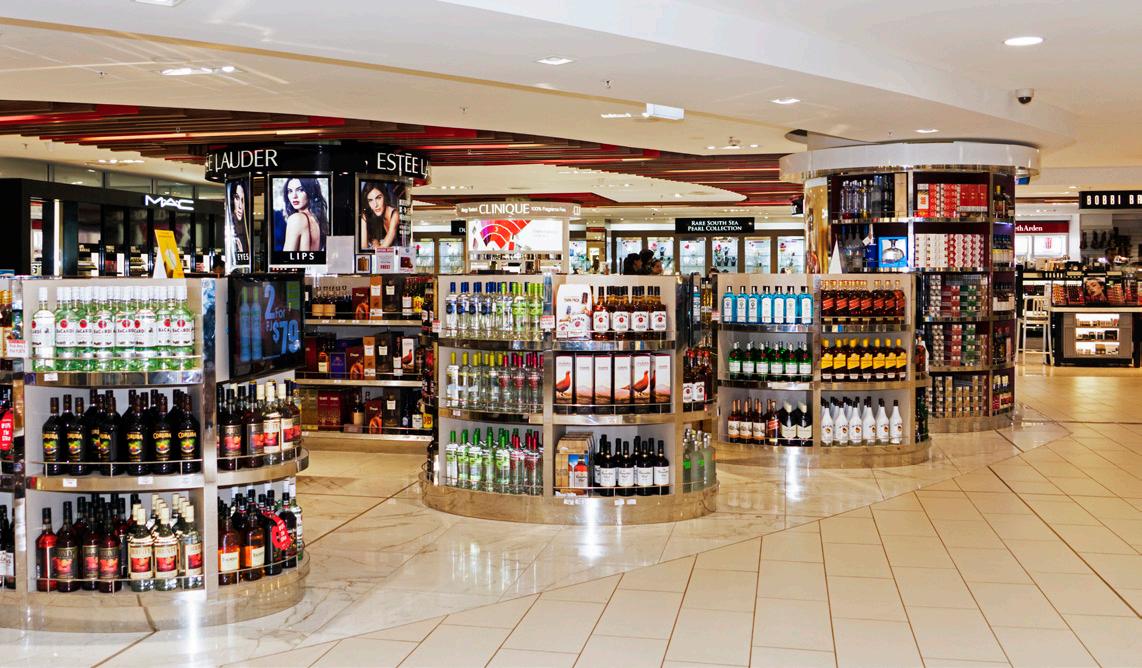
Tappoo has tremendous presence at both Nadi and Nausori International Airports.
The Departure Duty Free Store at Nadi International Airport is the flagship of the Group’s airport operations and ranks amongst the finest duty free shopping facilities in the region.
Our Duty Free stores carry leading brands of liquor and confectionery, fragrances and cosmetics, consumer electronics, watches and travel accessories.

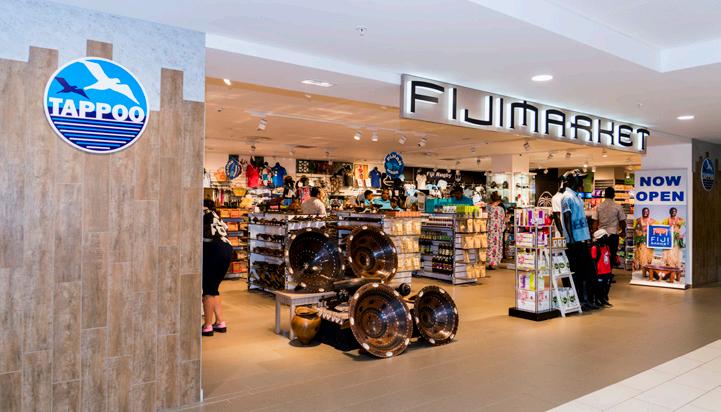

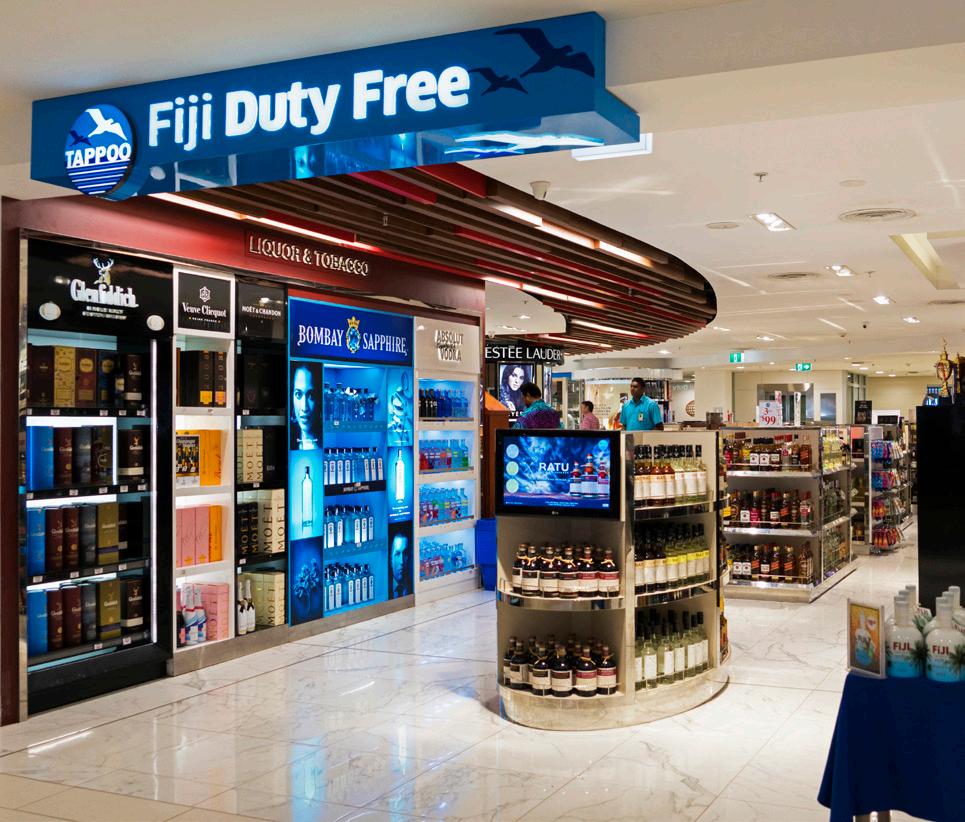

Throughout his expansive career, Nawari has served as a Board Director and Trustee for a diverse variety of corporate bodies and financial institutions across the Asia Pacific region, including Fiji, Papua New Guinea (PNG), and China, amongst others.
Nawari strives to take FA forward as a transformational and strategic leader, who has had previous experience in establishing, rejuvenating, and leading a number of highly successful entities throughout Fiji.
Such businesses include Fiji Television Group Limited, Fijian Holdings Unit Trust, Unit Trust of Fiji, and South Pacific Stock Exchange.
With such a varied portfolio, the new CEO has a variety of expertise, with the capabilities to be a corporate, finance, and investment advisor, as well as a coach, trainer, and mentor in the areas of strategic finance, corporate governance, financial institutions development, investments, portfolio management, risk management, performance management, organisational
re-engineering, and executive management development.
Regarding his previous roles, Nawari was the first CEO of the South Pacific Stick Exchange and the first General Manager of Fijian Holdings Unit Trust, two roles he is incredibly proud of.
Subsequently, Nawari was also the first CEO of Fiji TV Group, the holding organisation of Fiji TV, as well as Sky Pacific and EMTV in PNG. In these positions, he dramatically altered the South Pacific’s media landscape, implementing strategies that are still in place today.
The Australian Infrastructure Financing Facility for the Pacific (AIFFP) is building on Australia’s legacy as an enduring infrastructure development partner in the region. With significant investment, unparalleled capability, and extensive on-theground engagement, Australia remains a trusted partner of Pacific nations.
The AIFFP partners with Pacific and Timor-Leste governments, as well as the private sector, to design high-impact maritime, airports, energy, telecommunications, and transport and other urban infrastructure projects.
To find out more or to apply for financing, visit www.aiffp.gov.au

To add to the trailblazing achievements, Nawari has also been involved in the education of the next generation of business leaders, enjoying the role of the first Deputy Head of the Graduate School of Business at the University of South Pacific (USP), and later becoming the first Corporate Specialist at the Pacific Islands Forum Secretariat.
Alongside current involvement as the acting Chairman of the Unit Trust (Management) Limited, Nawari greatly anticipates his new role as CEO, as he drives FA into the next phase of its evolution.
Nadi International Airport first opened its doors following the completion of the original air strips, which were built between August 1939 and March 1940. Subsequently, the airstrip construction was transferred from New Zealand to Fiji in November 1941.
The airport’s first 2,100 metre (m) runway was completed in January 1942, with two additional runways completed in April of that year.
The runways of Nadi International Airport were briefly utilised by US Army Air Forces and the US Navy during the Pacific War in the early 1940s. However, following the end of the war in 1945, control of the airport was given to New Zealand in December 1946.
A turning point occurred, however, when the Fijian government achieved independence in 1970 and began participating in the control of the airport, eventually gaining full control in 1979.
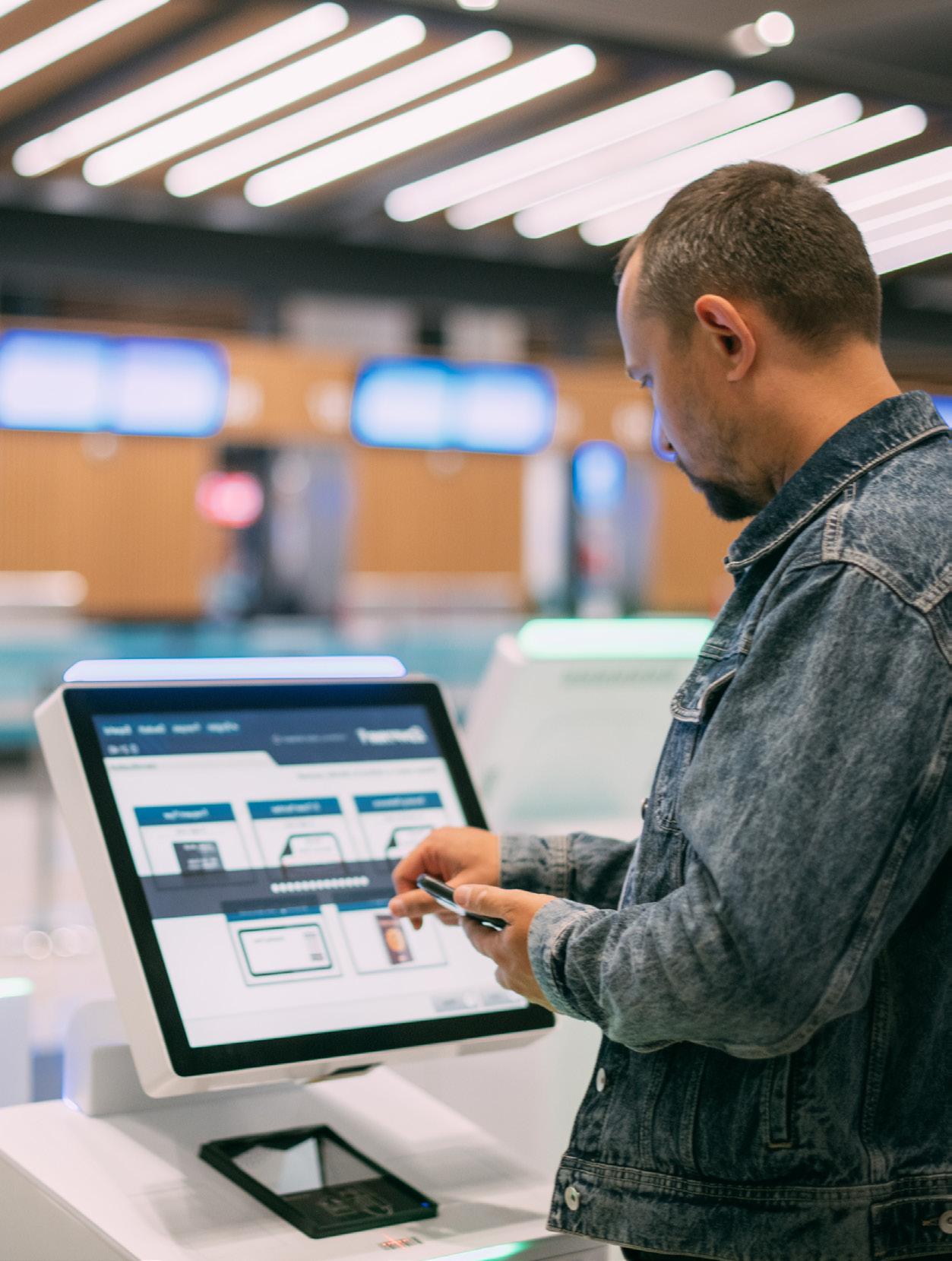
FA cares deeply about its passengers’ experiences at its airports; thus, it works closely with its stakeholders to ensure that each facility runs smooth and all its operations are streamlined, to uphold the company’s reputation for excellent service experience.
For the FA team, there is never a ‘business-as-usual day’, as they use world-class technology and processes to guarantee a seamless journey for their travellers.
The role of employees includes
ensuring a top-notch, personalised experience for each passenger, facilitated by exceptional check-in experiences, efficient baggage handling, enhanced communication, detailed staff training, quick issue resolution, site-wide accessibility, safety and security, feedback collection, and sufficient technology integration.
Evidently, the tireless pursuit of quality is the very essence of FA’s ‘Bula’ spirit in serving its customers. Such spirit is further endorsed

by the luxury shopping experience provided at Nadi International Airport, which offers a world-class shopping and dining experience for international visitors.
Prouds and Tappoo are two major duty-free retailers available at the airport, showcasing designer products and prestigious brands, which meet every passenger’s indulgences.
As the international aviation industry shifts towards a sustainable future, FA puts environmentally-friendly operations at the forefront of its focus, particularly as its industry is one of the greatest contributors of greenhouse gas (GHG) emissions.
Thus, in an interconnected industry such as aviation, the company is proactively exploring collaboration and innovation to try and mitigate its detrimental impacts. To this end, FA aligns with the global industry’s goals to reduce carbon emissions and attain low-carbon status, transitioning to a fully-functioning, net zero airport.
Nadi International Airport, in particular, is ahead of the eco-friendly curve by earning Level 3 Optimisation accreditation, awarded due to the airport’s outstanding work in reducing its GHG emissions and engaging the
• Management of world-class airport facilities on behalf of the government, ensuring its safe and efficient operation.
• Handling of air navigation services in the Nadi FIR.
• Provision of commercial activities through the development of FA’s assets.
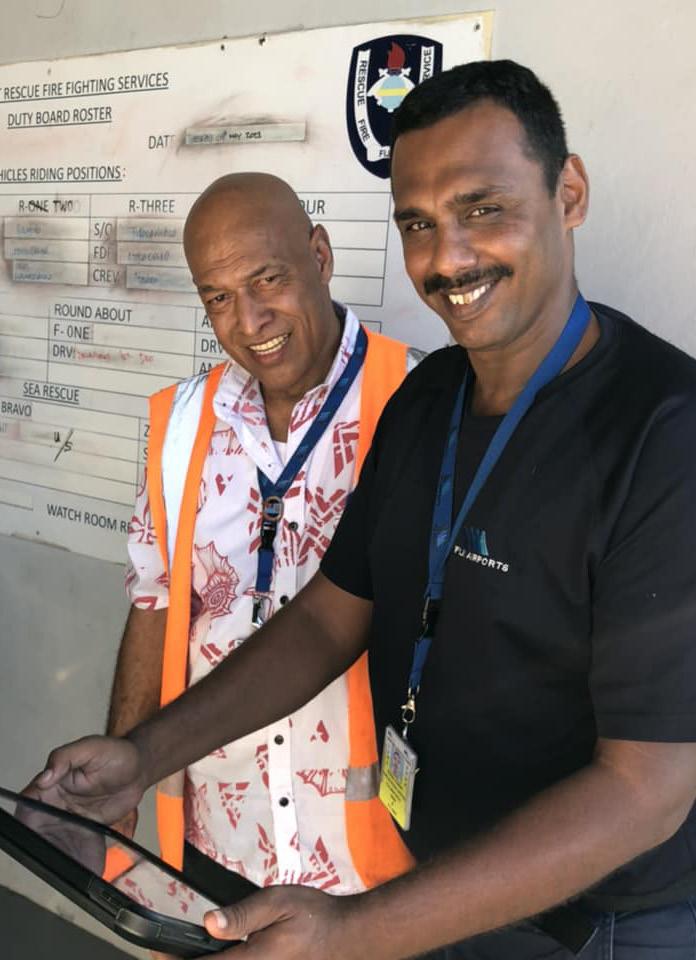
airport’s stakeholders to also work towards a reduction.
Furthermore, the airport was highlighted amongst other airports in the Asia Pacific for its exceptional sustainable approach. Other awarded sites included Abu Dhabi International Airport and Dubai International Airport (UAE), Hamad International Airport (Qatar), Adelaide Airport (Australia), Hong Kong International Airport (Hong Kong), Incheon Airport (South Korea), and Narita
International Airport (Japan).
To continue its renowned success, FA is in the initial process of constructing a solar farm at Nadi International Airport. This will have the impressive capability of fostering a 3.5 megawatt (MW) solar power system. In the second phase of the project, this capacity will be progressively increased to 8.5MW. Following this, solar power farms are also projected for Nausori International Airport and some of the outer island sites.


Building on the global success of our regional titles – North America Outlook, Africa Outlook, APAC Outlook, and EME Outlook – Outlook Publishing is proud to introduce a platform dedicated to the supply chain sector.
As supply chain organizations worldwide confront unprecedented change, embracing technological innovations and incorporating critical environmental sustainability agendas, now more than ever is the time to showcase the strides being taken in this dynamic sector.
A multi-channel brand, Supply Chain Outlook brings you the positive developments driven by organizations across the global supply chain industry through its various platforms. Discover exclusive content distributed through its website, online magazine, social media channels, and dispatches delivered straight to your inbox with a bi-weekly newsletter.
Through this compelling new venture, we foreground the movers and shakers of the industry. To participate as a featured company and join us in this exciting endeavor, contact one of our Project Managers today.
www.supplychain-outlook.com
In conjuction with the implementation of solar power, the company is also looking to upgrade its halogen airfield lights to LEDs, whilst also introducing a comprehensive waste recycling system across all of its forecasted projects and operations.
As a government company, FA is also finalising the Fiji State Action Plan in partnership with the Ministry of Civil Aviation and Fiji Airways. This further demonstrates the organisation’s commitment to lowering the aviation industry’s carbon emissions in accordance with its obligations to ICAO.
Alongside its customer service and environmental initiatives, FA is also recognised for its diligent safety and security standards.
These measures have been implemented to ensure the welfare of everyone within an airport’s premises and are in accordance with ICAO standards.
Its airport safety and security protocols are purposefully designed to protect passengers, staff, and aircraft from potential dangers, including terror threats, criminal activity, and accidents.
Meanwhile, the company has also made major investments in its Aviation Rescue Fire Fighting Service (ARFFS), materialising in

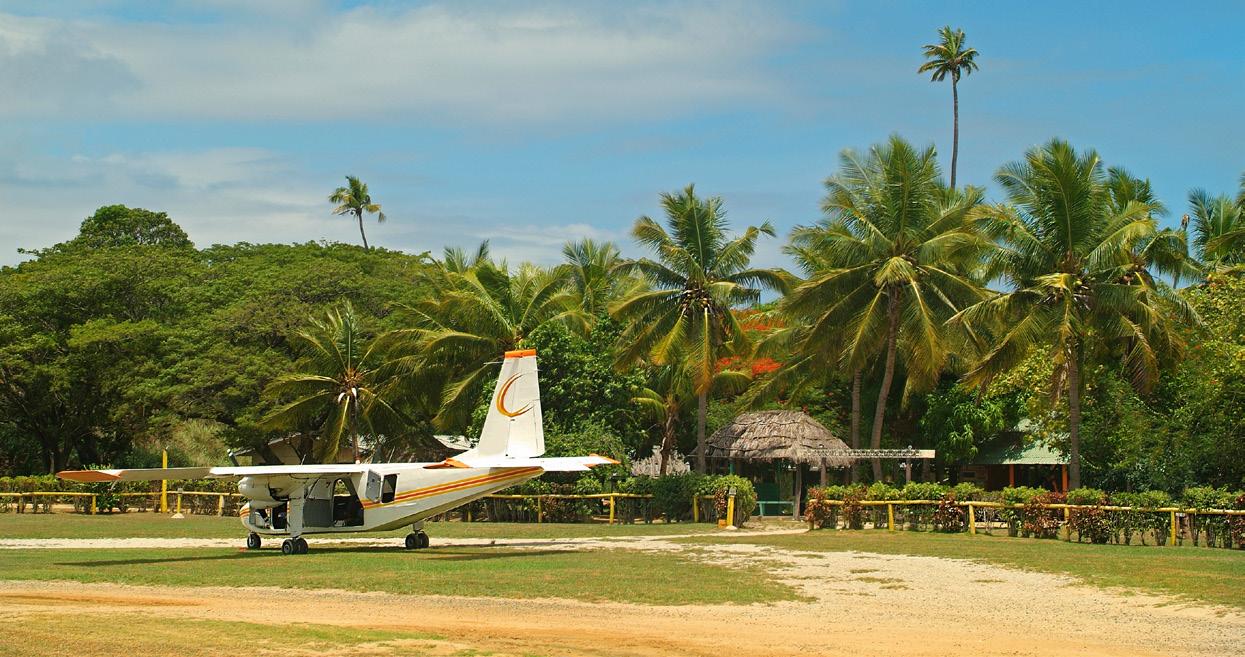
three new ARFFS vehicles, which will substantially improve the level of safety and preparedness in supporting aircraft operations at Nadi International Airport.
The first of its state-of-the-art Rosenbauer PANTHER 6x6 fire trucks fire will arrive at the end of this year, followed by a further two in July. FA will further invest in training and capacity building for its entire ARFFS team who will be in charge of its equipment across the company’s 15 airports.


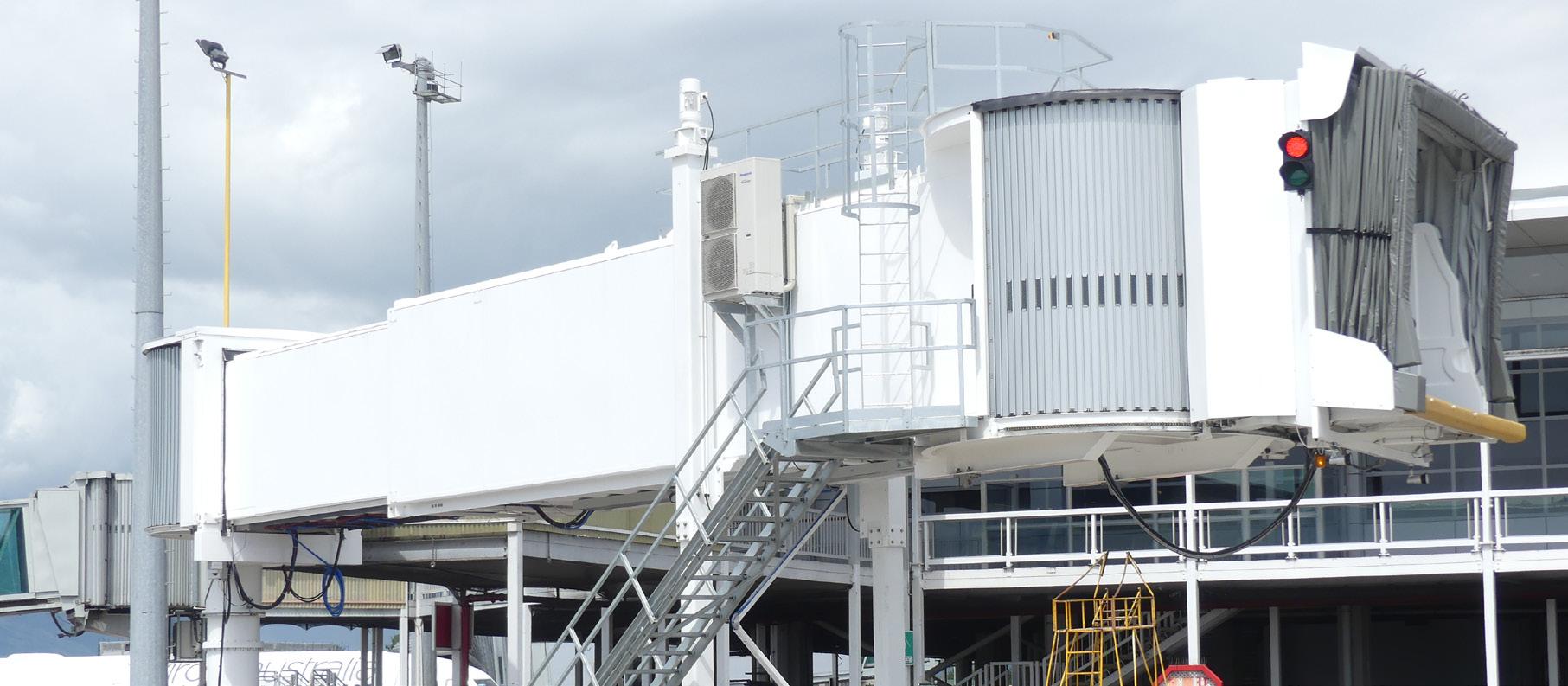
Our wide range of services include:
• Road and runway construction and maintenance
• Pavement engineering
• Road profiling and milling
• Water and sewer reticulation
• General land subdivisions and services
• General civil engineering construction works
Suppliers of:
• Asphalt (HMA) and cold premix
• Chip sealing with conventional or emulsion binders
• Hire of trucks
• Hire of earthmoving machinery
• Supply of crushed concrete and roading aggregate material
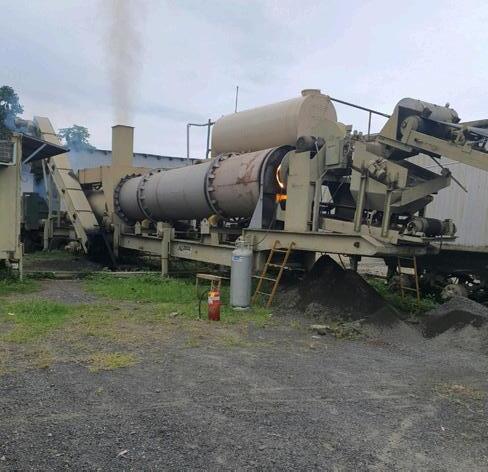
• Supply of quarry sand and screened pebbles
• Supply of builders mix
• Supply of top garden soil
Geotechnical testing:
• Nuclear density compaction testing (NDM)
• Clegg hammer CIV, CBR testing
• Schmidt hammer concrete testing
• Dynamic cone penetrometer (DCP) testing
• Internal PSD and moisture control on aggregates
• Asphalt and concrete coring

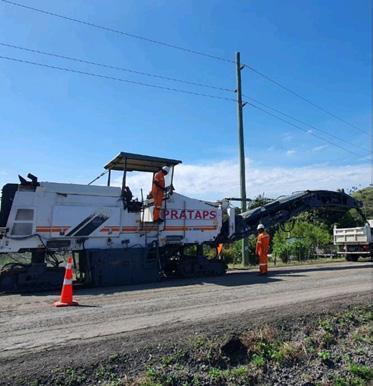

PRATAPS is a 100 percent Fijian, familyowned business, which offers comprehensive services in civil engineering construction works in Fiji since the 1980’s. Our experienced and qualified engineering team offers innovation, simplicity, and quality deliverance within reasonable budget.
Pratap’s Civil & Asphalt Quarries Pte Ltd For more information, call us on: Nadi – (+679) 6722258/ 9924601/9924613/9994601 (+679) 7924601/7924602/7924613/7924604 pratapsquarry@hotmail.com | prataps.admin@prataps.net rahul.p@prataps.net | rahul_a_pratap@hotmail.com
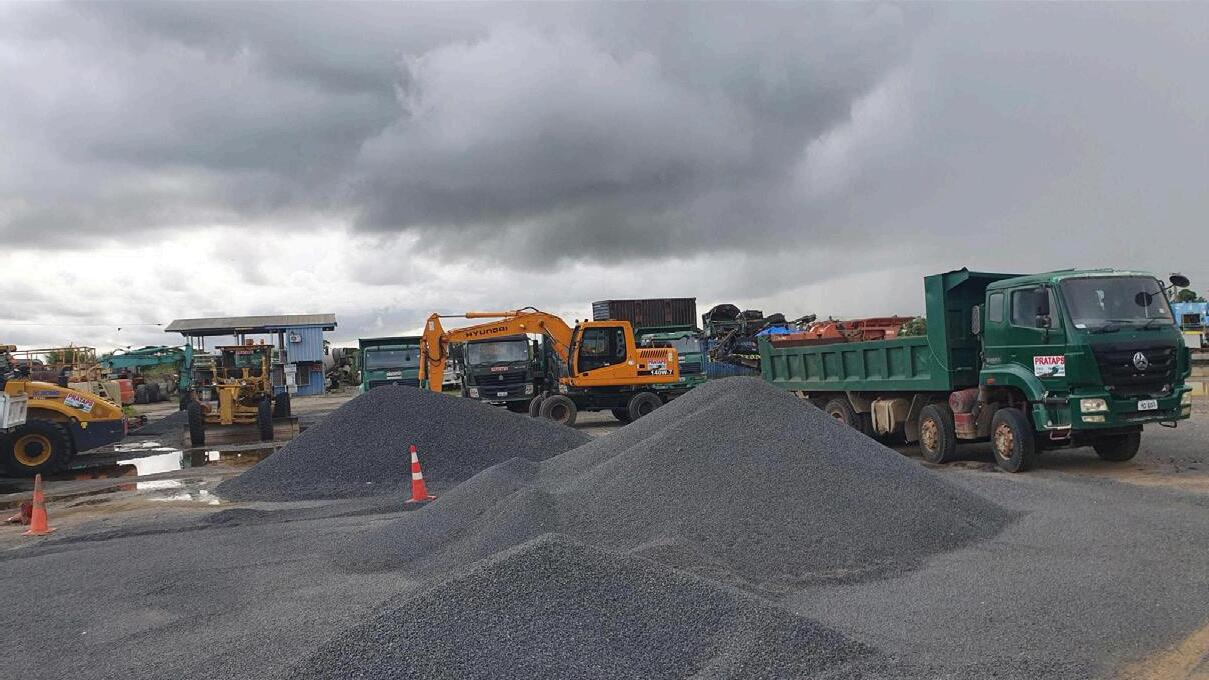
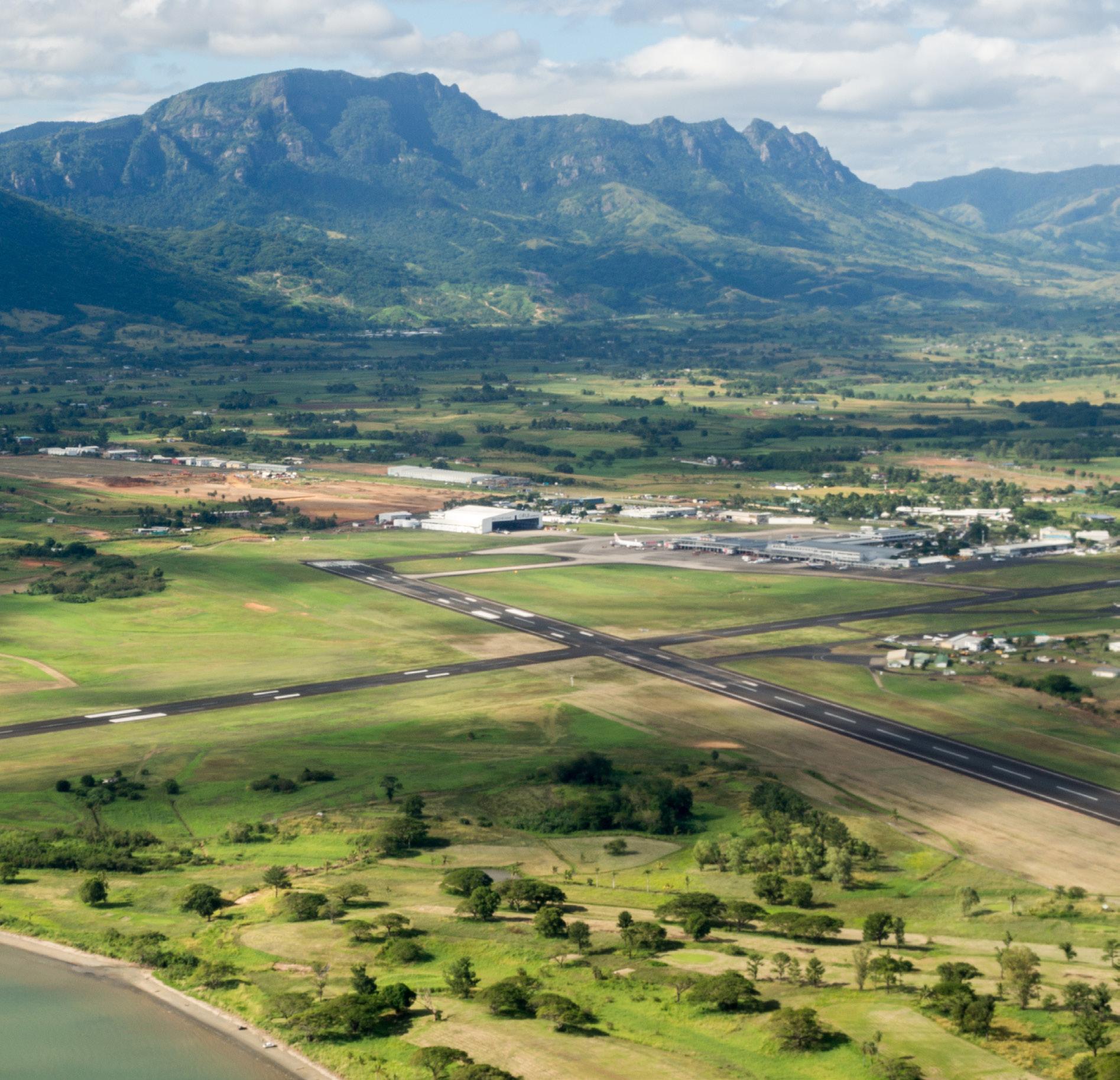
The ARFFS system implemented by FA will have a substantial and meaningful impact on the airline as the airport’s safety is secured whilst the company continues its success in the coming decades.
As the company looks towards the Fijian aviation sector, it is well-positioned to play a vital role in contributing to the country’s economic growth. Internally, it
endeavours to have a positive impact on its local community and support the growing population, whose livelihoods depend on the tourism and trade sectors.
Internationally, the company continues to rebound from the detriments caused by the global pandemic. Thus, FA is dedicated to the improvement of its internal infrastructure and enhancing its
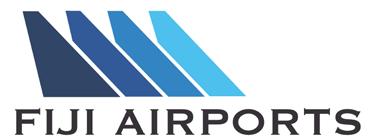
passenger experience to become industry-leaders. As a result, the company can further bolster the country’s global engagement and cement Fiji’s status as a global aviation hub. airportsfiji.com










 PRODUCED BY APAC OUTLOOK MAGAZINE
PRODUCED BY APAC OUTLOOK MAGAZINE